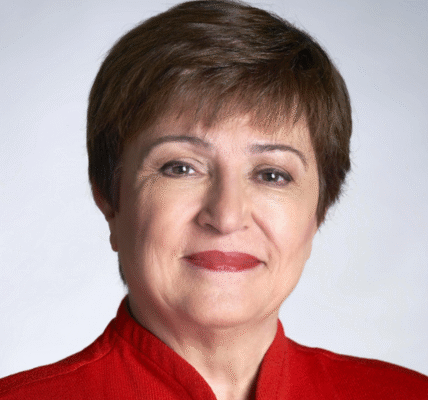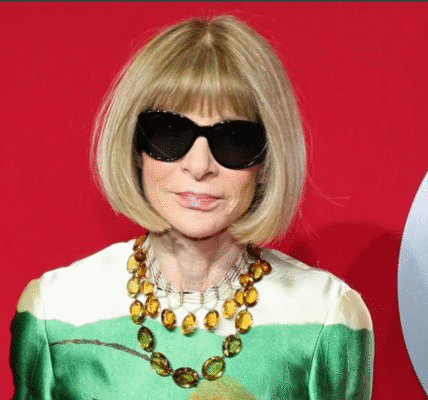Pfizer Inc.: A Legacy of Innovation in Pharmaceuticals

Pfizer Inc. is an American multinational pharmaceutical and biotechnology company based in The Spiral, Manhattan, New York City. Founded in 1849 by German entrepreneurs Charles Pfizer and his cousin Charles F. Erhart, the company initially focused on producing chemical compounds.
Pfizer develops and manufactures a wide range of medicines and vaccines, with a strong presence in fields like immunology, oncology, cardiology, endocrinology, and neurology. Its top-selling products include the Pfizer–BioNTech COVID-19 vaccine, which generated $11 billion in revenue in 2023, along with apixaban ($6 billion), a pneumococcal conjugate vaccine ($6 billion), palbociclib ($4 billion), and tafamidis ($3 billion). In 2023, 46% of Pfizer’s revenue came from the U.S., 6% from Japan, and 48% from other international markets.
The company ranks 38th on the Fortune 500 list and 39th on the Forbes Global 2000.
History
1849–1950: Early Years
Founded as “Charles Pfizer & Company,” Pfizer began its journey in Williamsburgh, New York, producing an antiparasitic called santonin. The company saw rapid growth after successfully producing citric acid in the 1880s, expanding its operations across Brooklyn and beyond. By the end of the 19th century, Pfizer had established its administrative headquarters in Manhattan.
During World War I, Pfizer faced a shortage of calcium citrate and pivoted to find alternatives, leading to the discovery of a fungus that could ferment sugar into citric acid. This expertise later enabled the mass production of penicillin during World War II to treat wounded soldiers. The company also initiated a global soil collection project to enhance penicillin yields, amassing over 135,000 samples.
On June 2, 1942, Pfizer was incorporated under Delaware General Corporation Law, marking a significant milestone in its corporate journey.
1950–1980: Transition to Pharmaceutical Research and Global Expansion
In response to declining penicillin prices, Pfizer sought new antibiotics with higher profit margins, discovering oxytetracycline in 1950. This pivotal discovery marked the shift from a fine chemicals manufacturer to a research-driven pharmaceutical company. To enhance its research capabilities, Pfizer developed a drug discovery program focused on in vitro synthesis, complementing its fermentation technology research. In 1959, the company established an animal health division with a 700-acre farm and research facility in Terre Haute, Indiana.
During the 1950s, Pfizer expanded its global footprint, opening offices in countries such as Belgium, Brazil, Canada, Cuba, Mexico, Panama, Puerto Rico, and the UK. In 1960, Pfizer relocated its medical research labs from New York City to Groton, Connecticut. By 1980, Pfizer launched Feldene (piroxicam), its first product to generate over $1 billion in revenue.
John Powers, Jr. became CEO in 1965, succeeding John McKeen. As the Brooklyn plant’s surrounding area declined in the 1970s and 1980s, Pfizer formed a public-private partnership with New York City to support local community initiatives, including low- and middle-income housing and a charter school. Edmund T. Pratt Jr. took over as CEO in 1972.
1980–2000: Major Drug Developments
In 1981, Pfizer received FDA approval for Diflucan (fluconazole), the first oral treatment for severe fungal infections. The company acquired worldwide rights to Zithromax (azithromycin) in 1986 and, in 1989, scientists created Viagra (sildenafil) for treating high blood pressure and angina. Although initially intended as a heart medication, Viagra was approved by the FDA in March 1998 and became widely known for its efficacy in treating erectile dysfunction.
William C. Steere, Jr. became CEO in 1991, the same year Pfizer began marketing Zoloft (sertraline), an antidepressant that achieved over $3 billion in sales by 2005. In 1996, Pfizer received FDA approval for Norvasc (amlodipine) and partnered with Eisai to launch Aricept (donepezil) for Alzheimer’s treatment.
In 1997, Pfizer co-marketed Lipitor (atorvastatin), which, after its patent expiration in 2011, became the best-selling drug ever, with approximately $125 billion in sales over 14.5 years.
2000–2010: Continued Expansion and Strategic Acquisitions
Henry McKinnell became CEO in 2001, and in 2004, Pfizer launched Lyrica (pregabalin), which became a leading medication for various conditions. However, the company faced setbacks, including the abandonment of torcetrapib development in 2006 due to safety concerns, resulting in a significant stock drop.
In 2000, Pfizer acquired Warner-Lambert for $116 billion, creating one of the largest pharmaceutical companies. The 2003 merger with Pharmacia further expanded its portfolio, bringing in key products like Celebrex and cancer medications developed by SUGEN.
In 2009, Pfizer acquired Wyeth for $68 billion, solidifying its position as the world’s largest pharmaceutical company and adding the Prevnar 13 vaccine to its portfolio.
2010–2020: Innovations and Strategic Moves
Ian Read became CEO in 2010, leading to several key acquisitions, including King Pharmaceuticals for emergency injectables. In 2013, Pfizer spun off its animal health division, Zoetis, as a public company.
The company continued expanding its portfolio with significant acquisitions, including Anacor Pharmaceuticals and Medivation, and pursued research collaborations to enhance its drug development capabilities.
In March 2020, Pfizer joined the COVID-19 Therapeutics Accelerator and collaborated with BioNTech to develop an mRNA COVID-19 vaccine. Pfizer invested approximately $2 billion of its own funds for this project, which culminated in the announcement of a highly effective vaccine in November 2020, marking a significant milestone in the global response to the pandemic.
Controversies Surrounding Pfizer
Allegations of Bullying Tactics in Vaccine Negotiations In February 2021, The Bureau of Investigative Journalism (TBIJ) accused Pfizer of using “high-level bullying” during negotiations for COVID-19 vaccine agreements with Latin American countries. Reports suggested that Pfizer demanded sovereign assets as collateral, resulting in delays with one country and failed negotiations with Argentina and Brazil.
Concerns Over Trial Integrity On November 2, 2021, TBIJ published an article based on whistleblower allegations from Brook Jackson, a regional director at Ventavia Research Group, which was contracted by Pfizer for clinical trials. Jackson claimed that Ventavia falsified data, compromised patient anonymity, and was slow to address reported adverse events. Although the European Medicines Agency (EMA) stated that these deficiencies did not impact the trial’s overall integrity, the situation raised significant concerns.
Transmission Evaluation Controversy During a European Parliament session on October 10, 2022, Pfizer executive Janine Small revealed that the company had not assessed its COVID-19 vaccine for its ability to reduce virus transmission before public release. This admission sparked outrage, with Dutch MEP Rob Roos labeling it “scandalous.” Pfizer’s CEO, Albert Bourla, who was scheduled to appear, withdrew from the session.
Development of Oral Antivirals
In November 2021, Pfizer introduced Paxlovid, an oral antiviral treatment for COVID-19. Reports of “rebound” symptoms following treatment emerged in May 2022, affecting notable figures, including U.S. President Joe Biden and Dr. Anthony Fauci, both of whom continued to advocate for the drug despite the findings.
Corporate Developments and Acquisitions
Starting in September 2020, Pfizer engaged in multiple acquisitions to strengthen its portfolio. Notable moves included acquiring a 9.9% stake in CStone Pharmaceuticals and merging its off-patent drug business, Upjohn, with Mylan to create Viatris. Over the following years, Pfizer continued to acquire companies like Arena Pharmaceuticals and Biohaven Pharma, expanding its reach in various therapeutic areas.
Legal Issues and Aggressive Marketing Practices
Pfizer has faced numerous legal challenges related to aggressive marketing tactics:
- Gabapentin Case (2004): Warner-Lambert (acquired by Pfizer) was fined $430 million for promoting gabapentin for unapproved uses.
- Bextra Settlement (2009): Pfizer settled for $2.3 billion due to illegal marketing of Bextra, a drug pulled from the market due to safety issues.
- Multiple Whistleblower Cases: Employees have raised concerns about off-label marketing and kickbacks, leading to various settlements.
In 2022, UK antitrust authorities fined Pfizer £63 million for unfair pricing practices related to the epilepsy drug Epanutin. Additionally, Moderna announced plans to sue Pfizer for alleged patent infringements on mRNA technology.
Environmental Record
Since 2000, Pfizer has launched over 4,000 greenhouse gas reduction initiatives. The company inherited environmental liabilities from Wyeth, specifically at the American Cyanamid site in Bridgewater Township, New Jersey, a highly toxic EPA Superfund site. Pfizer is actively working to remediate this land for future use and profitability. However, the cleanup plan has faced opposition from the Sierra Club and the Edison Wetlands Association, who argue that flooding could cause pollutants to leach into the environment. The EPA has deemed Pfizer’s remediation plan the most reasonable in terms of safety and cost-effectiveness, supported by the environmental group CRISIS.
In June 2002, a chemical explosion at Pfizer’s Groton facility injured seven individuals and prompted the evacuation of over 100 nearby homes.
Public-Private Engagement
Pfizer collaborates with both public and private sectors to advance research, fund academic initiatives, sponsor events, and engage in political lobbying.
Academia
- Institute for Advanced Study: Matching gifts and direct donations.
- University of Toronto: Donor to the Boundless Campaign and a member of the President’s Circle.
- University of Washington: Contributed between $10 million and $50 million by 2020.
Activism
- Donor to organizations like Habitat for Humanity and the Human Rights Campaign (HRC).
- Partner with groups such as WaterAid and Share Our Strength.
Conferences and Summits
- Sponsored events like the Women in Medicine Summit and served as a strategic partner for the World Neuroscience Innovation Forum.
Media Engagement During the COVID-19 pandemic, Pfizer utilized various media, including a commissioned documentary from National Geographic, to promote its COVID-19 vaccine. The company also sponsored the 2022 Oscars ceremony and has been a major donor to the National Press Foundation.
Medical Societies
Pfizer sponsors numerous medical societies, including:
- American Society of Hematology
- Canadian Cancer Society
- Endocrine Society
Political Lobbying
Pfizer is actively involved in political lobbying and is affiliated with several industry organizations. It has made substantial donations to various government and regulatory agencies, including:
- Adult Vaccine Access Coalition
- Alliance for a Stronger FDA
- Bipartisan Policy Center
Professional Associations
Pfizer sponsors numerous professional associations and events, including the Canadian Medical Association and the Academy of Surgical Research.
Public Health Initiatives
Pfizer engages in public health initiatives globally and provides funding to various health care facilities, including:
- CANImmunize: Vaccine passport software.
- Hospital for Sick Children: Donor to the SickKids Foundation.
- Centre for Addiction and Mental Health: Donor.
Research and Development
Pfizer collaborates with multiple medical research networks and organizations, sponsoring initiatives such as:
- Accelerating COVID-19 Therapeutic Interventions and Vaccines (ACTIV)
- Drugs for Neglected Diseases Initiative: Partnering for the development of medicines for neglected diseases.
Through these diverse engagements, Pfizer demonstrates its commitment to environmental sustainability, public health, and advancing medical research.
Summary
Pfizer is a leading global biopharmaceutical company known for its extensive research and development of medicines and vaccines. It has initiated over 4,000 greenhouse gas reduction projects and engages in various public and private partnerships to promote health initiatives and fund academic research. Pfizer became highly visible during the COVID-19 pandemic with its vaccine and actively participates in political lobbying and industry coalitions, balancing innovation with commitments to public health and environmental sustainability.




































